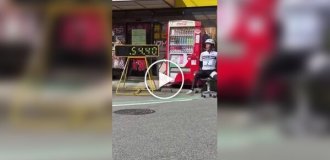Mr. Bean, fame and an unsuccessful assassination attempt on a royal person (6 photos)
The closest Mr. Bean came to killing the Queen was when he head-butted the head of the British Royal Family. The Queen was injured but survived, and Mr. Bean managed to escape. But that was a TV show. A hundred years ago, another Mr. Bean attempted to kill Queen Victoria, and met a different fate. 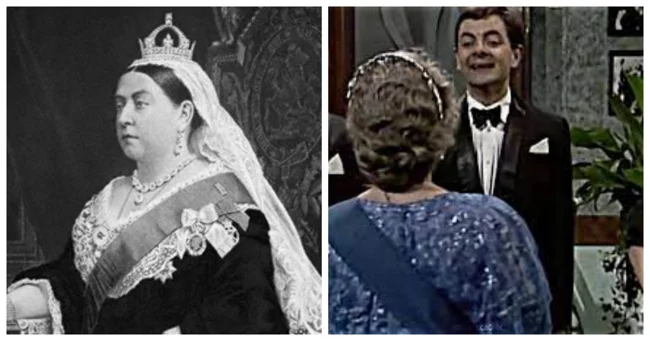
John William Bean was a real person. And unlike the wonderful character played by Rowan Atkinson, the Victorian Mr. Bean was disgusting. Tuberculosis had destroyed his spine, leaving him stooped and short. His arms were atrophied, and his hands were small, like a child's. He walked with a hunched, shuffling gait, leaning his entire body toward a noticeable hump over his right shoulder. His face was covered in scars, and his eyes were barely visible in the depths of their sockets. 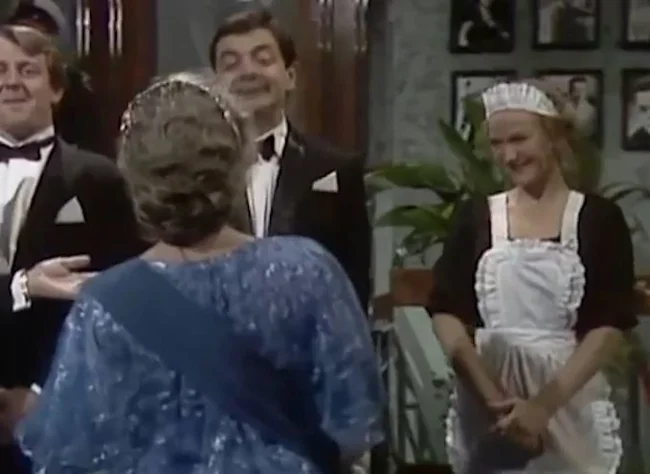
Still from the show "Mr. Bean and the Queen's Meeting"
Bean was born in 1824 in Holborn, Middlesex, the son of a jeweler, John William. John tried to persuade his son to become an apprentice, but Bean was unable to cope due to his physical limitations. Bean looked for easier jobs, but his apprenticeships with a cheese maker and at Her Majesty's Stationery Office also ended in failure. Then Bean began working as a newspaper seller. This work suited him. The hours were short, and his employer even allowed him to read the newspapers he sold after lunch.
One day, Bean came across a series of news articles about Edward Oxford, who had attempted to assassinate Queen Victoria. Edward was arrested and sent to the Bethlem State Asylum for the Insane, where he remained for 24 years, painting, reading, and learning to play the violin. He played chess and studied various languages, such as French, German, Italian, Greek, and Latin. The more Bean read about Oxford and its apparent luxury, the more disgusted he became with his own miserable existence. Slowly but surely, Bean began to formulate a plan. 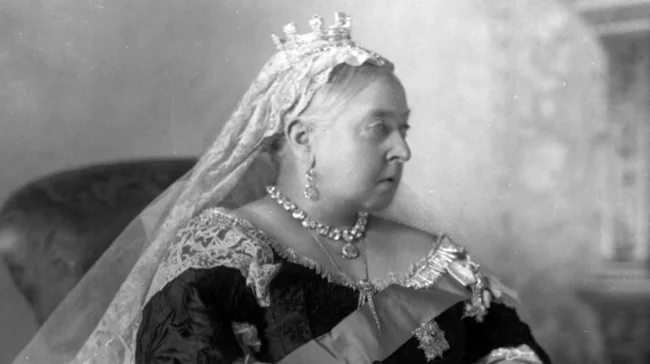
Queen Victoria
Within a few weeks, Bean sold off his meager collection of books, including the Bible, and used the proceeds to buy a rusty old pocket flintlock from a neighbor. For three days, he stalked the grounds of Buckingham Palace, waiting for an opportunity to fire a pistol at the Queen. That opportunity came on July 3, 1842. Bean was on The Mall when Queen Victoria passed by on her way from Buckingham Palace to the Chapel Royal at St James's Palace.
Bean pushed his way into the crowd, pulled out a pistol and fired at the Queen. However, the pistol misfired because it was loaded with poor quality gunpowder. The Queen did not notice, but Charles Edward Dassett, a salesman from Bean's father's art dealership, saw him and grabbed his wrist. 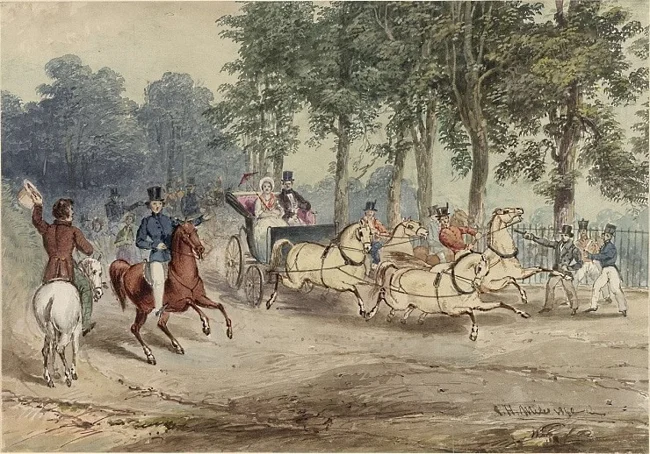
An assassination attempt by another assailant, Edward Oxford. Oxford stands at the railings of Green Park, pointing a gun at Victoria and the Prince Consort, as a policeman runs up to him
Dassett took Bean to two policemen, but neither would take the cripple into custody, insisting that there was insufficient evidence of a crime. By the time Dassett managed to convince the police, Bean had already escaped. That same day, the London police issued a wanted notice for him. Every hunchback who even vaguely matched Bean's description was brought to the police station for identification. Bean was soon captured. 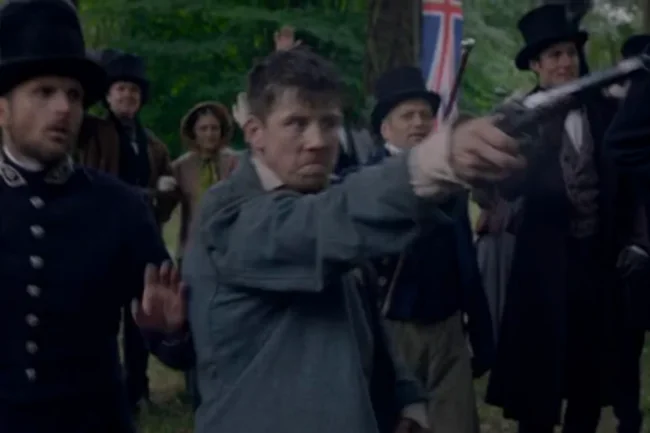
He was initially charged with treason, but this was later reduced to a misdemeanor of assaulting the Queen, as the police believed he was simply seeking attention. They decided that if the charge was reduced, the newspapers would pay less attention to the case, which would ruin any hopes he had for publicity. Bean claimed that he was tired of life and wanted to be deported to Australia. The police offered him bail, but he refused.
A trial was held, where Bean was found guilty of a misdemeanor and sentenced to 18 months' hard labor, the maximum allowed by law. Following the affair, the Queen's husband, Prince Albert, felt that the death penalty for treason without causing harm was too harsh and asked Parliament to pass a law recognizing minor crimes of treason that would not be punishable by death. This wish was fulfilled with the passing of the Treason Act 1842. 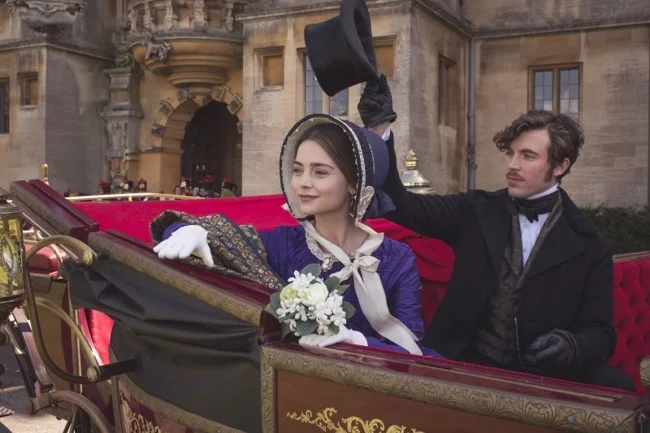
Still from the TV series "Queen Victoria"
Meanwhile, Bean served his sentence in Millbank Prison, and after his release became a newspaper seller and a jeweller. Bean married twice, and in 1849 his son Samuel was born. In 1882, he committed suicide by taking large quantities of opium. The note he left behind stated that he had "been a nuisance to his wife" and was "only glad to die".


